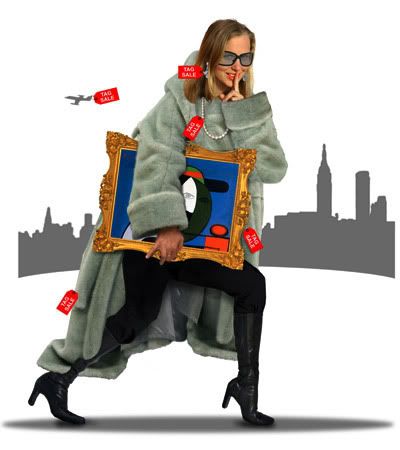Nueva ley "mordaza" de Chavez.
World-Americas. |
| Chávez Decree Tightens Hold on Intelligence By SIMON ROMERO Published: June 3, 2008 |
|
|
| CARACAS, Venezuela President Hugo Chávez has used his decree powers to carry out a major overhaul of this country's intelligence agencies, provoking a fierce backlash here from human rights groups and legal scholars who say the measures will force citizens to inform on one another to avoid prison terms. Under the new intelligence law, which took effect last week, Venezuela's two main intelligence services, the DISIP secret police and the DIM military intelligence agency, will be replaced with new agencies, the General Intelligence Office and General Counterintelligence Office, under the control of Mr. Chávez. The new law requires people in the country to comply with requests to assist the agencies, secret police or community activist groups loyal to Mr. Chávez. Refusal can result in prison terms of two to four years for most people and four to six years for government employees. "We are before a set of measures that are a threat to all of us," said Blanca Rosa Mármol de León, a justice on Venezuela's top court, in a rare public judicial dissent. "I have an obligation to say this, as a citizen and a judge. This is a step toward the creation of a society of informers." The sweeping intelligence changes reflect an effort by Mr. Chávez to assert greater control over public institutions in the face of political challenges following a stinging defeat in December of a constitutional reform package that would have expanded his powers. Mr. Chávez, who has insisted the defeat would not dampen his ambitions to transform Venezuela into a Socialist state, said the new law was intended to guarantee "national security" and shield against "imperialist attacks." He lashed out at its critics as being agents of the "empire," meaning the United States. The law's stated aim of protecting Venezuela follows a history of antagonism between the governments in Caracas and Washington, dating at least from the Bush administration's tacit support for a short-lived coup against Mr. Chávez in 2002. Recently, Venezuela has claimed it was subject to military intimidation from the United States, pointing to a recent violation of Venezuelan airspace by an American fighter jet and Washington's recent reactivation of its Fourth Fleet to patrol Latin American and Caribbean waters. On Sunday, Mr. Chávez referred to critics of the intelligence law as de facto supporters of the Bush administration and of the Patriot Act, the American antiterrorism law that enhances the ability of security agencies to monitor personal telephone and e-mail communications. Mr. Chávez's new intelligence law has similar flourishes. For instance, it authorizes his new intelligence agencies to use "any special or technically designed method" to intercept and obtain information. But the new law may also point to the influence of Cuba, Venezuela's top ally, on intelligence policies. For instance, the use of community-monitoring groups to assist in gathering intelligence resembles Cuba's use of neighborhood Committees for the Defense of the Revolution to report on antigovernment behavior. "This is purely Cuban-style policy," Juan José Molina, a legislator with Podemos, a leftist party that broke from Mr. Chávez's coalition last year, said of the new intelligence law. "Our rulers want to impose old models upon us." Interior Minister Ramón Rodríguez Chacín announced the intelligence overhaul in a public appearance here last week, saying it was needed to combat "interference from the United States" by having intelligence agency workers imbued with "ideological commitment." On Monday, however, Mr. Rodríguez Chacín softened his tone, saying the law would not lead to political intimidation or restrict freedom of expression. "We are talking about the responsibility all Venezuelans have with the security of the state and the resolution of any crime," he said. The drafting and passage of the law behind closed doors, without exposing it to the public debate it would have had if Mr. Chávez had submitted it to the Assembly, also contributed to the public uproar and suspicion. One part of the new law, which explicitly requires judges and prosecutors to cooperate with the intelligence services, has generated substantial concern among legal experts and rights groups, which were already alarmed by the deterioration of judicial independence under Mr. Chávez. While the language of this passage of the law, and several others, is vague, legal experts say the idea is clear: justice officials, including judges, are required to actively collaborate with the intelligence services rather than serve as a check on them. "This is a government that simply doesn't believe in the separation of powers," said José Miguel Vivanco, Americas director for Human Rights Watch, the New York-based rights organization. "Here you have the president legislating by decree that the country's judges must serve as spies for the government." Mr. Chávez's opponents here grasped for reasons as to why he chose this moment for the intelligence overhaul, with his government grappling with economic problems like climbing inflation and slowing economic growth even as the price of oil, the lifeblood of Venezuela's economy, remains near record levels. "Even within the Bolivarian movement, this would officialize Soviet- and Cuban-style purges, accusing dissidents of being spies, traitors or agents of the imperialist enemy," El Nacional, a normally staid opposition newspaper, said in an editorial that ended, "This is revolting." In some ways, the changes would merely refine the control Mr. Chávez already exerts over intelligence operations. His government has already used voter registration data to purge employees deemed disloyal to the president from the intelligence agencies and other parts of the civil service. Several legal activists said Monday that they were studying ways to appeal the law, but the viability of a legal challenge remains unclear. "This is the most scandalous effort to intimidate the population in the 10 years this government has been in power," said Rocío San Miguel, a prominent legal scholar who heads a non-governmental organization that monitors Venezuelan security and defense issues. Ms. San Miguel said information her group had collected could be deemed illegal under the new law. The group has data from military sources showing that Mr. Chávez's efforts to create a force of 1 million reservists had fallen far short. "Under the new law, this information could be considered a threat to national security and I could be sent immediately to jail," she said. "Effectively this is a way to instill fear in NGOs and news organizations and parts of society that remain outside the government's reach." |



